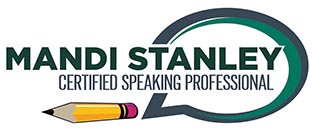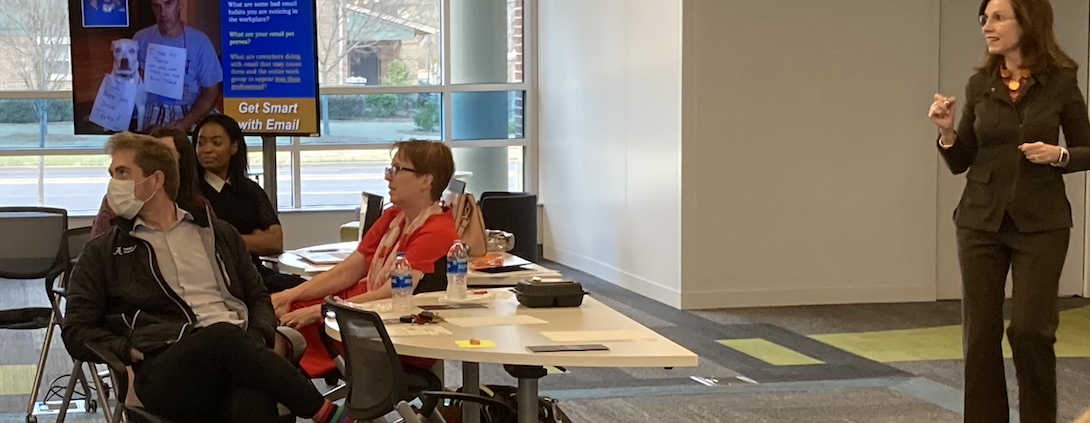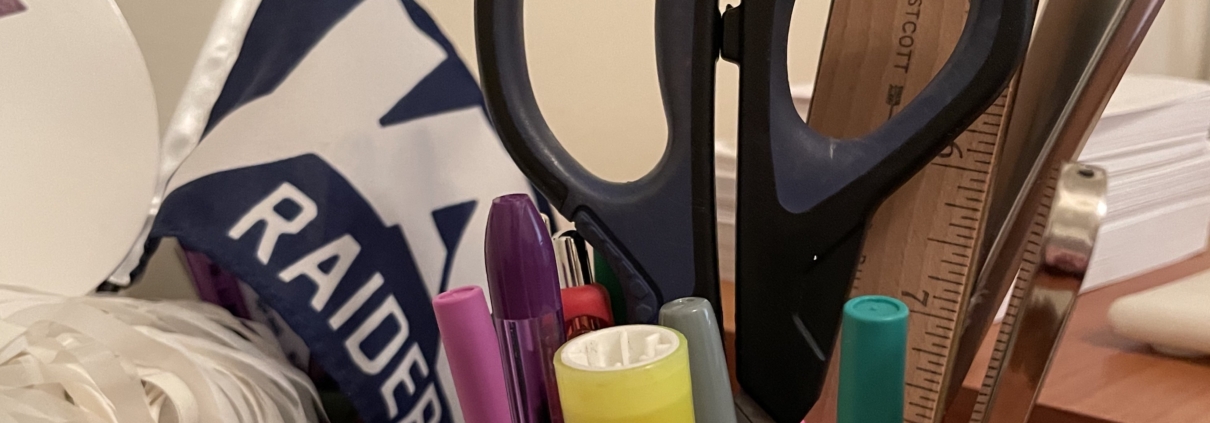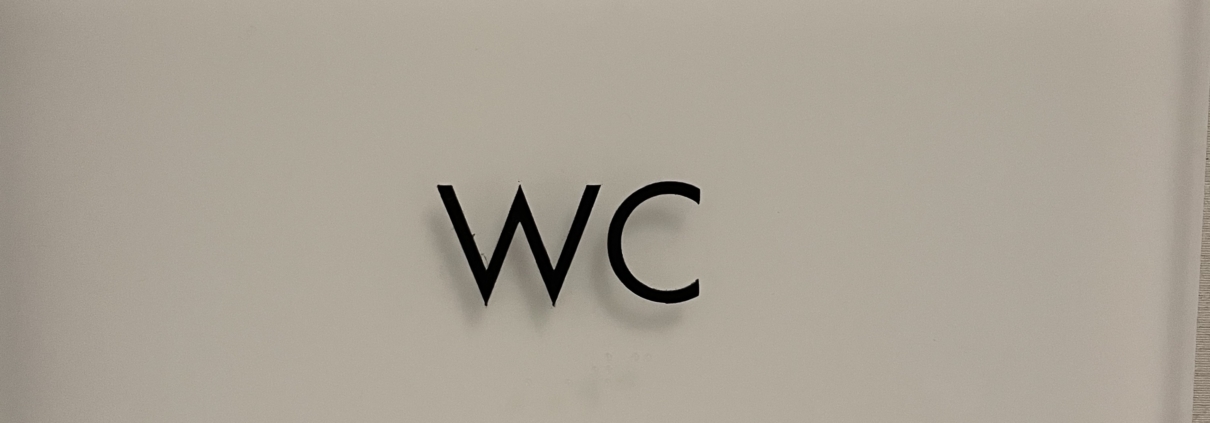This photo is of one of the walls in the conference center at the #AloftSeattleRedmond. I was honored to facilitate a three-day Advanced Communications Program for a cohort of emerging leaders for one of my clients, and we all got a kick out of the creative artwork throughout the meeting area. But, can you tell what the wall is composed of? Look closely.

In fact, we’ll use this photo to introduce our #GrammarforGrownups question this week. Which word is correct?
If you [home in, hone in] on this photo, you can tell the entire wall is composed of old keyboard keys.
Scroll for the answer.
Answer: home in
If you home in on this photo, you can tell the entire wall is composed of old keyboard keys.
I have always said hone in similar situations.
I have always been wrong.
To home in means to get closer to something such as an object or a goal or the truth. Picture a homing pigeon (why haven’t I realized that before).
To hone means to sharpen something—and you don’t hone in on anything.
My son honed his test-taking skills in preparation for the ACT.
And, I’m certainly honing my vocabulary this month.
Can you think of other examples of words you have been using incorrectly without realizing it?
To customize a keynote or professional development session that will have your audience laughing and learning, contact Mandi Stanley.
Certified Speaking Professional Mandi Stanley works with business leaders who want to boost their professional image by becoming better speakers and writers through interactive high-content keynotes, breakout sessions, workshops, technical writing seminars, and fun proofreading classes.
You might also like:
Prefer Performance to Chronology in Your Résumé
It’s Interview Time: What’s the One Detail Most Interviewees Forget?
Wacky Word of the Week: Purge this Particular Word












